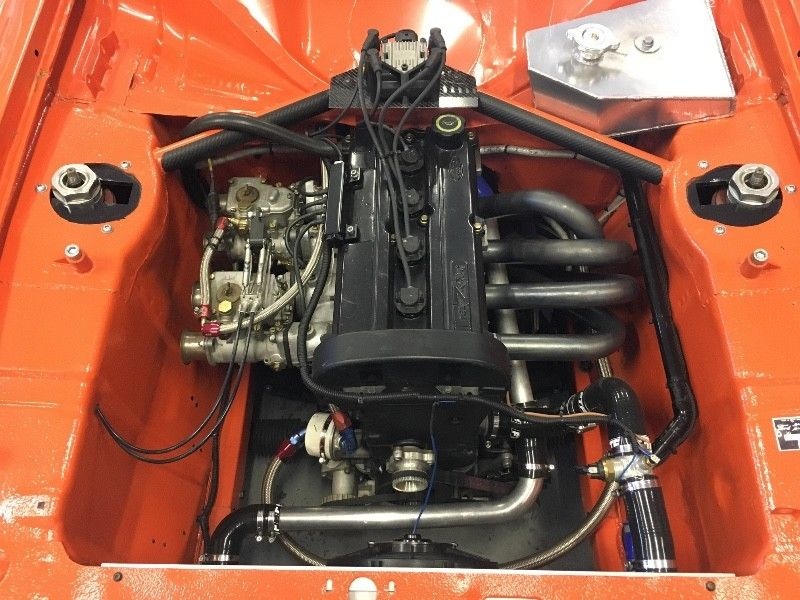Drive with Confidence: Toyota Tazz Engine for Sale, Genuine Parts Just
Drive with Confidence: Toyota Tazz Engine for Sale, Genuine Parts Just
Blog Article
Engine Acquiring Expert Tips on Selecting the Right Engine for Your Particular Demands
Selecting the right engine for your specific demands entails a complicated interplay of aspects that go past simple horse power numbers. By diving into the ins and outs of power versus efficiency, evaluating gas scores, and budgeting for lasting prices, one can genuinely maximize their engine choice.
Power Vs. Performance: Discovering the Equilibrium

When picking an engine, it is essential to strike a balance between power and performance to meet your certain demands successfully. Power describes the engine's capacity to produce energy for propulsion, establishing variables like acceleration, towing capacity, and overall efficiency (Toyota Tazz Engine For Sale). On the other hand, efficiency connects to how well the engine uses fuel to produce power, impacting factors such as gas economy and environmental kindness
Attaining the best balance in between power and efficiency is vital since an engine that is also effective may consume excessive gas, resulting in higher operating expense and unneeded stress on the atmosphere. Conversely, an engine that focuses on effectiveness over power may lead to slow efficiency, specifically sought after scenarios like pulling heavy lots or driving uphill.
To make a notified choice, take into consideration factors such as your common driving conditions, the intended use of the lorry, and your individual choices. By reviewing your concerns and demands, you can pick an engine that strikes the perfect equilibrium in between power and efficiency, guaranteeing ideal performance while decreasing environmental influence and operating expense.
Understanding Engine Dimension and Kind

Additionally, engine type plays an essential function in figuring out the performance characteristics of an engine. Common engine types include inline engines, V engines, and rotating engines, each with its one-of-a-kind benefits and downsides. The engine kind impacts factors such as the engine's dimension, weight circulation, and power shipment. Recognizing the interaction between engine size and kind is essential in picking an engine that straightens with your particular needs and priorities, whether it be power, efficiency, or an equilibrium of both.
Consider Your Vehicle's Requirements
If you are looking for an engine for a sturdy truck that will be utilized for towing, you will require an effective engine with high torque capacities. On the other hand, if you are picking an engine for a compact auto primarily used for city commuting, fuel effectiveness might be a more vital aspect to take into consideration.

Examining Gas Effectiveness Scores
Assessing gas performance ratings is a crucial aspect of choosing the appropriate engine for your vehicle, ensuring price savings and ecological sustainability. Fuel efficiency ratings, usually gauged in miles per gallon (MPG) for fuel engines or kilowatt-hours per 100 miles (kWh/100 miles) for electrical engines, show how far an automobile can travel on a details amount of fuel or electrical power. Higher MPG or reduced kWh/100 miles worths represent a lot more efficient engines, converting to lowered gas costs and reduced carbon emissions.
When reviewing fuel performance rankings, consider your driving practices and demands. A highly fuel-efficient engine can result in significant cost savings over time if you commute long distances daily. In addition, contrast various engine choices within the exact same vehicle class to identify the most affordable selection. Elements such as engine size, weight, aerodynamics, and crossbreed or electrical capacities can all influence gas effectiveness.
Budgeting for Long-Term Prices
Strategically preparing for long-term expenditures is crucial when selecting an engine, guaranteeing monetary sustainability over the car's life expectancy. While the preliminary purchase rate of an engine is a substantial aspect, it is critical to take Full Report into consideration the long-lasting expenses associated with maintenance, repair work, and gas usage. Going with an extra fuel-efficient engine may have a greater upfront price however can cause substantial financial savings in time. Routine upkeep, such as oil changes, filter replacements, and tune-ups, is necessary to keep the engine running efficiently and efficiently, lowering the risk of pricey repair services down the line.
In addition, researching the availability and cost of substitute parts for the picked engine is important in budget plan planning. Engines with cost effective and readily available components can considerably affect lasting maintenance expenses. Additionally, taking into consideration the engine's longevity and anticipated life expectancy can help stay clear of unanticipated substitute prices in the future. By very carefully budgeting for these lasting expenses and factoring them right into the decision-making procedure, people can select an engine that not only fulfills their prompt needs however also remains cost-efficient throughout its lifespan.
Conclusion
To conclude, selecting the appropriate engine for your details requirements calls for stabilizing power and performance, understanding engine dimension and kind, considering your lorry's requirements, examining gas efficiency ratings, and budgeting for long-lasting expenses. By carefully thinking about these variables, you can guarantee that you select an engine that satisfies your demands and gives optimum efficiency for your vehicle.
To further refine the selection process of an engine that strikes the optimum balance between power and efficiency, it is necessary to delve right into the details of understanding engine size and kind. Engine dimension refers to the overall volume of air and gas that can be pushed with the engine cyndrical tubes. Common engine types include inline engines, V engines, and rotating engines, each with its unique advantages and drawbacks. Understanding the interaction between engine size and type is important in selecting an engine that straightens with your particular needs and priorities, whether it be power, performance, or an equilibrium of both.
Fuel effectiveness ratings, commonly gauged in miles per gallon (MPG) for gasoline engines or kilowatt-hours per 100 miles (kWh/100 miles) for electric go to website engines, suggest just how much a lorry can travel on a particular amount of gas or electricity.
Report this page